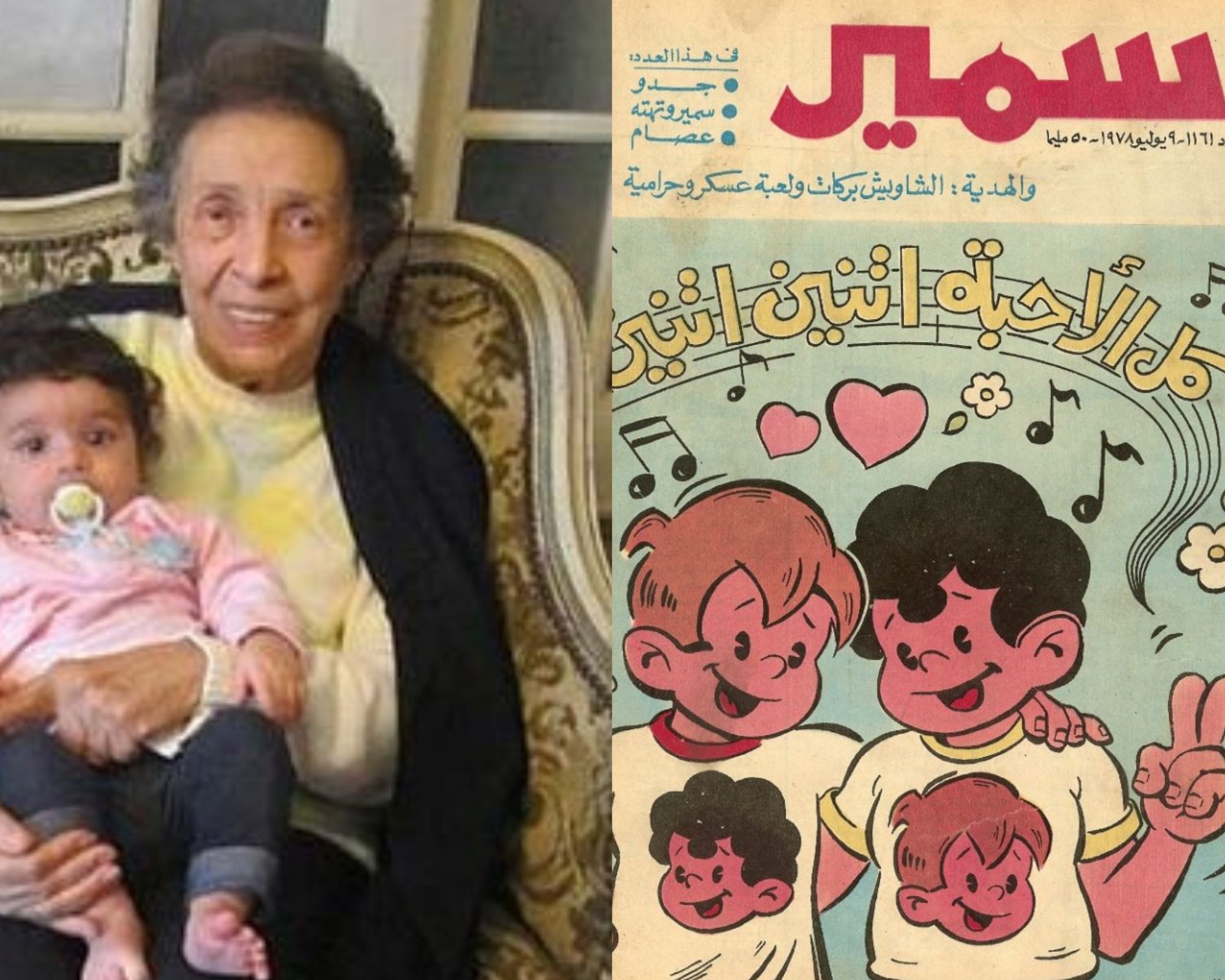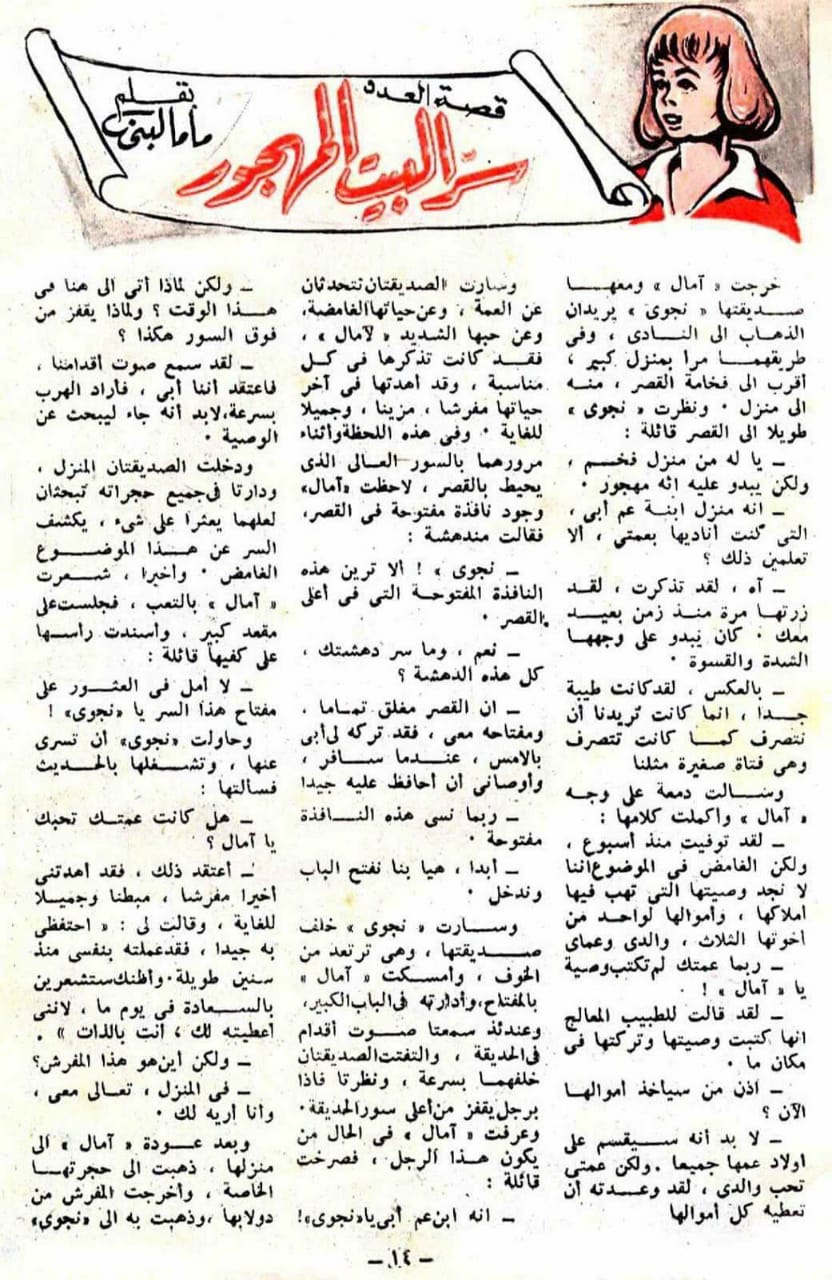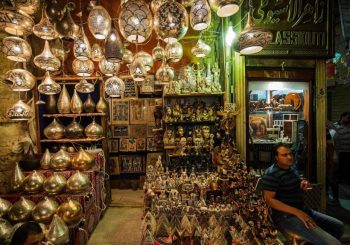As an author who managed to embed elaborate and immersive worlds into the pages of her stories — touching and influencing the lives of adults and children alike — Notalia Rashed is a pioneer in children’s literature. Endearingly known as ‘Mama Loubna,’ Rashed devoted years of her life to the creation and promotion of children’s literature in the Arab world.
Born on 20 September, 1934 in Cairo, Rashed studied at Cairo University, where she wrote her first children’s stories, inspired by Egypt’s 20th century history.
By 1953, her work jumped from ink on paper to radio broadcasts, and by the late 1950s, she helmed the creation of the groundbreaking educational Arab children’s magazine, Samir, which she later oversaw as editor-in-chief from 1966 until 2002.
Through her work, Rashed aimed at providing children all over the world with an authentic depiction of life in contemporary Egypt through her stories. In 1979, she published Abo Qir and Abo Seer, a modern adaptation of Alf Leila w Leila (A Thousand and One Nights), which blends Egypt’s cultural heritage with modern life.
“The world knew Pharaonic Egypt, and Egypt in the early Arab and Islamic epochs, but 20th century Egypt is not familiarly known to the same extent,” Rashed noted.
She believed that while there were many literary works about life in ancient Egypt, contemporary Egypt was not talked about as much.
Rashed had a profound influence on the promotion of Egyptian literature for children and young people alike, with varying influential input to children’s magazines, radio programmes, and television shows across the Arabic-speaking Middle East and North Africa (MENA). She had a weekly column called Awlady Habayeb Qalby (My Beloved Children). Adamant to teach children the basics of journalism and writing by creating, she opened the section ‘Correspondent Samir’ for aspiring journalists to further cultivate their media awareness at a young age.
Among her most famous works is ‘The Diary of Yasser Family’, published in 1979, which inspired the first Egyptian children’s film created by the Egyptian National Council of Culture. Besides her work as an author, Rashed also translated foreign children’s classics into Arabic, including ‘The Emperor’s New Clothes’ (1837), ‘The Happy Prince’ (1888), and ‘Black Beauty’ (1877).
She received a variety of awards in honor of her contributions to Egyptian literature and society, including the State Award for Children’s Literature in 1978, the State Award for Children’s Journalism in 1995, and the Medal of the Council of the Ministry of Culture in 2002. She was also a member of the High Committee of the Cairo International Festival for Children’s Film, and of the Child and Young People Committee of the Alexandria Library.
After Rashed passed away on 26 May, 2012, Google paid tribute to the pioneering author on what would have been her 86th birthday, with a Doodle created by Jordanian-American artist Sara Alfageeh. Alfageeh, who like many people in the Arab world, has been inspired by Rashed’s work.
“How hard she worked to keep art and reading accessible to every kind of child deeply resonated with me.” Alfageeh explained.
“She made sure her magazines and comics could reach the hands of any kid by keeping costs low. In her stories, she never talked down to children and just provided moral lessons, she encouraged readers to come to their own conclusions. She was an incredible woman.”








Comments (0)